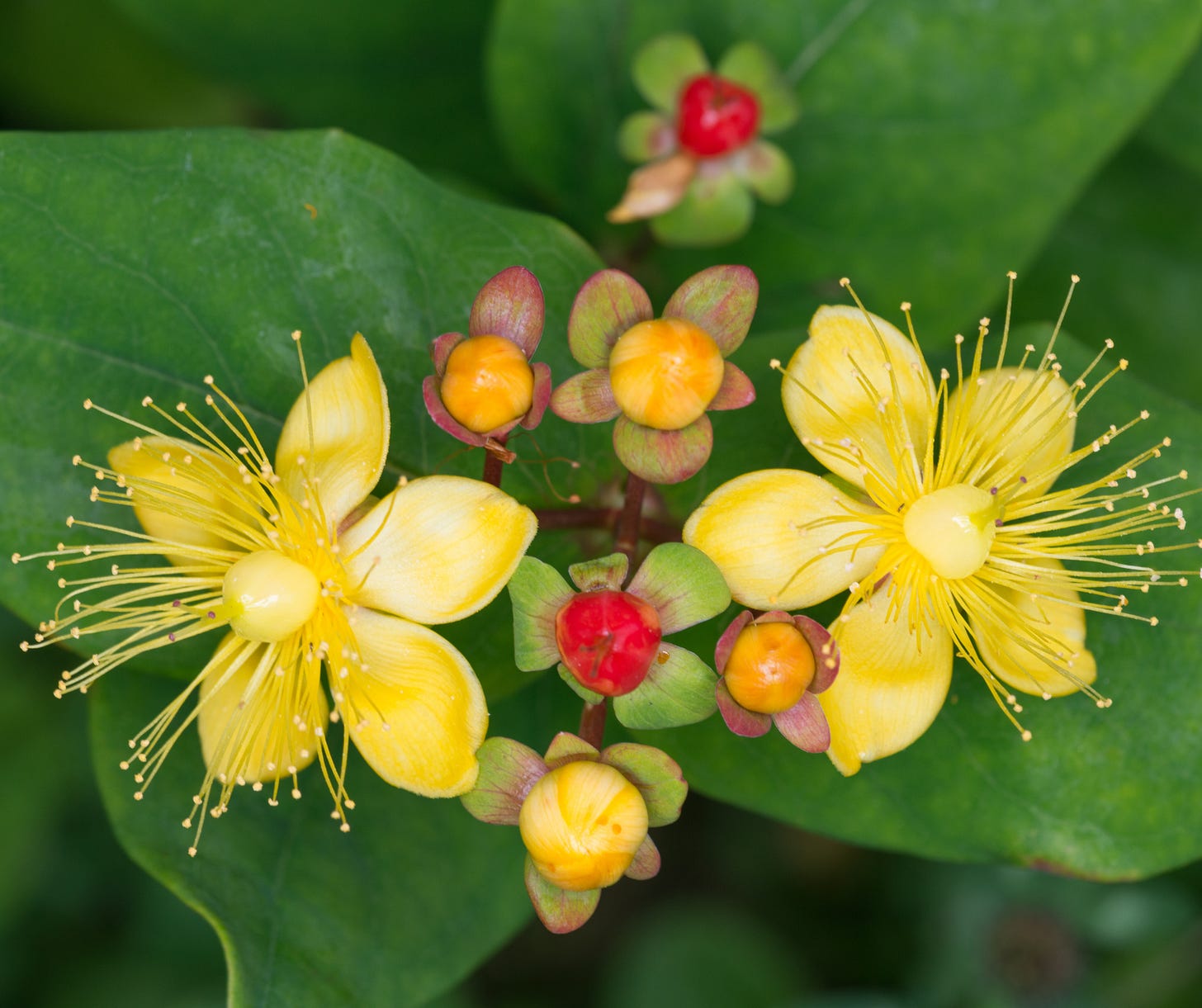Whoever states there is no published research on homeopathy is clearly uniformed and towing a ‘pharma/government party line’ - a quick Pubmed search gives 204 results using the filters ‘homeopathy’ and ‘2022.’
My personal 2022 research highlight was the mining of nearly 60,000 Twitter opinions on homeopathy for COVID-19 over a seven month period, which showed unique positive tweets at twice the number of unique negative tweets; but when retweets were included negative tweets were 23% higher - indicating that an anti-homeopathy stance will get you better Twitter traction.(1) (Are you surprised? I am not...)
Encouragingly, the biennial Congress of the Faculty of Homeopathy featured speakers emphasizing that it is individual prescribing which characterizes homeopathic treatment, with Dr. Bob Leckridge reminding us of the fact that homeopathy is about reflecting the unique and profound self-healing powers of the individual.(2)
During 2022 three Meta-Analysis’ of homeopathy were published:
The proportion of patients experiencing adverse effects are significantly higher for conventional medicine and herbs, compared to homeopathy.(3)
Outcome reporting bias (ORB) ‘affects the validity of the body of evidence of homeopathic literature and may overestimate the true treatment effect’(4) literally breezing past the fact that ORB affects all disciplines of medical research and is prevalent in Randomized Controlled Trials,(5) Systematic reviews, and Cochrane protocols(6-8), while failing to mention that their finding of ORB in 25% of published homeopathy trials is almost equal to the 23% ORB found in Cochrane systematic review groups.(6) The Homeopathy Research Institute(9) note that this study actually showed that in regard to scientific and ethical standards ‘homeopathy is out-performing conventional medicine in this respect, with lower levels of reporting bias.’
Concluding clinically relevant and statistically robust effect in the treatment of ADHD.(10) (For more see the Substack Homeopathy & ADHD)
Three homeopathy Randomized Controlled Trials were published in 2022:
Hypericum perforatum to Improve Postoperative Pain Outcome After Monosegmental Spinal Sequestrectomy (HYPOS).(11) Although no significant differences between the groups could be shown, the authors found patients who took Hypericum in addition to usual pain management had lower consumption of analgesics.
Efficacy of individualized homeopathic medicines in intervening with the progression of pre-hypertension to hypertension: A double-blind, randomized, placebo-controlled trial(12) found a small, but non-significant direction of effect favoring homeopathy, which ultimately rendered this trial inconclusive.
Efficacy of Individualized Homeopathic Medicines in Treatment of Acne Vulgaris: A Double-Blind, Randomized, Placebo-Controlled Trial.(13) Overall improvements were greater in the IHM group than placebo, with small to medium effect sizes after 3 months; however, the inter-group differences were statistically non-significant.
Efficacy of Individualized Homeopathic Medicines in the Treatment of Atopic Dermatitis in Adults: A Double-Blind, Randomized, Placebo-Controlled, Preliminary Trial(14) found small, but nonsignificant direction of effect towards homeopathy, rendering the trial inconclusive. A properly powered robust trial is indicated.
Individualized Homeopathic Medicines in Treatment of Vitiligo: Double-Blind, Randomized, Placebo-Controlled Pilot Trial.(15) Mean reductions in the outcome measures were higher in the IHM group than placebo concluding: Definitive efficacy trials are warranted.
Efficacy of individualized homeopathy as an adjunct to standard of care of COVID-19: A randomized, single-blind, placebo-controlled study.(16) Adjunctive individualized homeopathic management with integrated standard of care has resulted in better clinical outcomes in patients with COVID-19 in terms of early recovery. Further, double-blind, controlled studies are needed to confirm these results.
2023 will bring more quality research results for homeopathy - two RCT to watch:
The Homeopathic Treatment of Children and Youth With Attention Deficit Hyperactivity Disorder expects to conclude in February 2023.(17)
The HOMEOSAR trial, to determine the efficacy of individualized or standardized homeopathic drug treatment compared to placebo regarding rhinitis-related quality of life in patients with seasonal allergic rhinitis is expected to be completed by end October 2023.(18)
Since November 2022 this Substack, Evidence Based Complementary Medicine, has compiled the following articles for free public consumption:
Homeopathy & Type 1 Diabetes Mellitus
Homeopathy, Dysbiosis, & the Bowel Nosodes
Homeopathy & Urinary Tract Infection
Homeopathy & Irritable Bowel Syndrome
INTRO... (to Evidence Based Complementary Medicine)
Thank you for your eyes and attention over the past six weeks’ - a LOT of free content has come your way, please also consider sharing this work within your respective cohorts. I look forward to your continued interest in homeopathy research and support for Evidence Based Complementary Medicine in 2023!
Sarah Penrose BSc(hons)Hom. is an Australasian homeopath and can be contacted at goodhealthforgreatlife.com
References
1 Bopaiah et al., 2022. Opinions on Homeopathy for COVID-19 on Twitter. Proc ACM Web Sci Conf. 2022 Jun;2022:359-363. Available from https://www.ncbi.nlm.nih.gov/pmc/articles/PMC9472594/
2 Mathie, 2022. Individualisation: The Heart of Homeopathy. Homeopathy. Feb;111(1):1. Available from: https://pubmed.ncbi.nlm.nih.gov/35100648/
3 Stub et al., 2022. Adverse effects in homeopathy. A systematic review and meta-analysis of observational studies. Explore (NY). Jan-Feb;18(1):114-128. Available from https://pubmed.ncbi.nlm.nih.gov/33303386/
4 Gartlehner et al., 2022. Assessing the magnitude of reporting bias in trials of homeopathy: a cross-sectional study and meta-analysis. British Medical Journal; Evidence Based Medicine. Mar 15:bmjebm-2021-111846. Available from: https://ebm.bmj.com/content/early/2022/05/08/bmjebm-2021-111846.long
5 Dwan et al., 2008. Systematic review of the empirical evidence of study publication bias and outcome reporting bias. PLoS One. Aug;28;3(8):e3081. Available from: https://journals.plos.org/plosone/article?id=10.1371/journal.pone.0003081
6 Shah et al., 2020. Outcome reporting bias in Cochrane systematic reviews: a cross-sectional analysis. British Medical Journal open. Mar 16;10(3):e032497. Available from https://www.ncbi.nlm.nih.gov/pmc/articles/PMC7076244/
7 Kirkham et al., 2010. The impact of outcome reporting bias in randomised controlled trials on a cohort of systematic reviews. British Medical Journal. Feb 15;340:c365. Available from https://www.bmj.com/content/340/bmj.c365.long
8 Kirkham et al., 2010. Bias due to changes in specified outcomes during the systematic review process. PLoS One Mar 22;5(3):e9810. Available from https://journals.plos.org/plosone/article?id=10.1371/journal.pone.0009810
9 Homeopathy Research Institute, 2022. HRI comment on BMJ article assessing reporting bias in trials of homeopathy. Kensington, London. Available from: https://www.hri-research.org/2022/03/homeopathy-research-institute-hri-comment-on-bmj-article-assessing-reporting-bias-in-trials-of-homeopathy/
10 Gaertner, Teut, & Walach, 2022. Is homeopathy effective for attention deficit and hyperactivity disorder? A meta-analysis. Pediatr Res. Jun 14. Available from https://www.nature.com/articles/s41390-022-02127-3
11 Raak et al., 2022. Hypericum perforatum to Improve Postoperative Pain Outcome After Monosegmental Spinal Sequestrectomy (HYPOS): Results of a Randomized, Double-Blind, Placebo-Controlled Trial. J Integr Complement Med. May;28(5):407-417. Available from https://pubmed.ncbi.nlm.nih.gov/35171041/
12 Dutta et al., 2022. Efficacy of individualized homeopathic medicines in intervening with the progression of pre-hypertension to hypertension: A double-blind, randomized, placebo-controlled trial. Explore (NY). May-Jun;18(3):279-286. Available from https://pubmed.ncbi.nlm.nih.gov/34147344/
13 Rai et al., 2022. Efficacy of Individualized Homeopathic Medicines in Treatment of Acne Vulgaris: A Double-Blind, Randomized, Placebo-Controlled Trial. Homeopathy. Nov;111(4):240-251. Available from https://pubmed.ncbi.nlm.nih.gov/35299272/
14 Dey et al., 2022. Efficacy of Individualized Homeopathic Medicines in the Treatment of Atopic Dermatitis in Adults: A Double-Blind, Randomized, Placebo-Controlled, Preliminary Trial. Complement Med Res. 2022;29(1):17-26. Available from https://pubmed.ncbi.nlm.nih.gov/33857943/
15 Karuppusamy et al., 2022. Individualized Homeopathic Medicines in Treatment of Vitiligo: Double-Blind, Randomized, Placebo-Controlled Pilot Trial. J Integr Complement Med. Jan;28(1):96-102. Available from https://pubmed.ncbi.nlm.nih.gov/35085016/
16 Nayak et al., 2022. Efficacy of individualized homeopathy as an adjunct to standard of care of COVID-19: A randomized, single-blind, placebo-controlled study. Complement Ther Clin Pract. Aug;48:101602. Available from https://www.ncbi.nlm.nih.gov/pmc/articles/PMC9080028/
17 ClinicalTrials.gov, 2022. NIH US National Library of Medicine. A Placebo Controlled Study of Homeopathic Treatment of Children and Youth With ADHD. Available from https://clinicaltrials.gov/ct2/show/NCT02086864
18 Siewert et al., 2022. Homeopathy for seasonal allergic rhinitis: rationale, design and methods of the three-armed randomized controlled HOMEOSAR trial. BMC Complement Med Ther. Dec 22;22(1):338. Available from https://www.ncbi.nlm.nih.gov/pmc/articles/PMC9773622/








